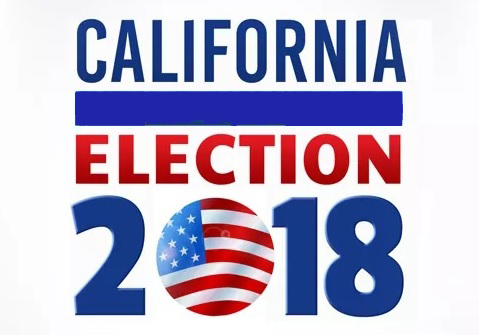The 2018 midterm elections ran their course with the usual mix of victories, disappointments and a handful of surprises. Like our membership that stretches from San Diego to Kern County and points in between, I kept an eye on how water issues we discussed, drove and engaged with did at the ballot box. The next day, it was right back to work on helping to solve the state’s most pressing water issues.
Governor-elect Gavin Newsom
Few were surprised to see heavily favored Democrat Lt. Governor Gavin Newsom beat out Republican John Cox for the governorship. In the coming months, our coalition looks forward to discussing California’s water needs and resources with Governor-elect Newsom and his early appointees. The new administration provides us an opportunity to help inform future policies on issues such as water supply, conservation, water quality, ecosystem restoration and more. We also have expressed our coalition’s strong support for California WaterFix as the best and most cost-effective long-term solution to securing a reliable and efficient water supply — a vital project for California’s future.
One of Governor-elect Newsom’s first acts was to issue a joint letter with Governor Brown requesting a 35-day delay on the Nov. 7, 2018, vote on the State Water Resources Control Board’s proposed amendments to flow mandates in the Lower San Joaquin, Stanislaus, Tuolumne and Merced rivers. As you know, SCWC strongly opposes these amendments that will decrease water supplies for cities, schools and agriculture groups in the region. Postponing the vote to Dec. 12, 2018 will give the five irrigation districts that hold the water rights time to work out a settlement to improve conditions for salmon without harming farmers.
Proposition 3
I was disappointed that Proposition 3, the Water Supply and Water Quality Act of 2018, did not secure enough votes to pass despite broad support from water agencies and others. SCWC had urged a “Yes” vote on the $8.9 billion bond aimed at providing necessary funding for our state’s water infrastructure. But the bond didn’t garner the support it needed even though voters approved a $4.1 billion water bond in June, as well as other bonds for water projects in 2014, 2006, and 2002.
What does its defeat mean for those of us worried about California’s water future? It’s a reminder that our work is not done — and that it is more important than ever. Funding like this is sorely needed for water quality, infrastructure, and supply reliability and we’ll continue to spark conversation, advocate for solutions and keep water issues top of mind among Californians. Setbacks happen but also steel our resolve to drive meaningful, long-lasting change in the world of California water. I’m optimistic that the innovators working on California water will find other ways to bridge the funding gaps and build a sustainable water future for the state.
Measure W
A slim victory seems within reach for the new Los Angeles County parcel tax aimed at paying for collecting and recycling stormwater. If it becomes law, Measure W will levy a new tax on property owners to help meet federal water quality standards going into effect soon. The money is needed to clean up polluted water and reduce the region’s reliance on imported water.
Get Involved and Stay Involved
Elections are a necessary and important focus. But at SCWC, we work day-in, day-out to bring a representative, balanced and non-partisan voice to vital water issues impacting the region’s economy, environment and prosperity. And we need you to add your voice to the conversation. Let’s work together to engage Southern Californians in our state’s complex water issues. Join one of our task forces. Attend and network at one of our workshops or events. Engage with us on social media. We need your dedicated leadership and commitment to help us meet our mission: to educate and engage Southern Californians in order to drive meaningful, long-lasting change in the world of California water.
